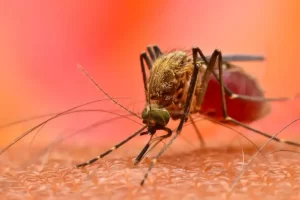
Monkeypox Alert: Confirmed Cases in Canada and UK: Expert Says India Should be Careful as Tourist Season Begins
Infectious disease experts in India say there have been no reported or suspected cases of monkeypox yet but with tourist season opening up, there is a high chance that the infection may ‘travel” to the subcontinent. Canada confirmed its first two cases in Quebec while 30 more are suspected to be also infected with the virus. This is adding to the growing number of cases in Europe and North America. Spain and Portugal have detected over 40 suspected cases of monkeypox, a viral infection rarely seen in Europe. Should India be worried? Dr. Behram Pardiwalla, Head of Medicine, Wockhardt Hospital, Mumbai told News9 that so far we have not seen any cases in the country. “However, the country has to be on alert since people have started traveling. Usually, the viral infection spreads through human contact and the person has to be exposed to the infected person for a prolonged period before he can get infected. It is thought that the reservoir is in the rodents (mice, rats). It is also thought that the incidence of the infection is more in gays,” Dr. Pardiwalla said. He also said that the chances of the infection coming to India can be mitigated if the people are careful while traveling. “They must stay away from those who have skin rashes. Monkeypox is not an infection that can be hidden. There are pustules (bulging patches of skin that’s full of a yellowish fluid) all over the skin,” Dr. Pardiwalla explained. He said that the person can get monkeypox only after the infected person develops pustules. “One has to be in very close contact – less than two feet of distance – for the person to get the infection. Otherwise, it is not possible to get this infection,” Dr. Pardiwalla said. What is the Transmission Rate? This is a communicable disease in humans. While only limited human-to-human spread has been reported thus far, it was estimated that the transmission rate was 3.3 percent to 30 percent. But in the recent outbreak in the Democratic Republic of Congo, the transmission rate was estimated at 73 percent. The World Health Organization reported a total of 75 cases and two deaths due to monkeypox in the Democratic Republic of the Congo in the last week of February. During the first two months of 2022, 704 cases have been reported with 37 deaths. What is Monkeypox? It is a rare usually mild infection, typically caught from infected wild animals in parts of Africa. According to the NHS website, the disease is a relative of smallpox, causing a rash that often begins on the face. It was first recorded in the Democratic Republic of Congo in the 1970s. The number of cases in West Africa has increased in the last decade. WHO Tracing the Virus During a conference, World Health Organization’s Maria Van Kerkhove said, “We are working very closely with our regional office and other agencies to evaluate each of these cases, the source of the infection, and forward contract tracing so that there is no further human-to-human transmission.” “Several studies are underway to understand the extent of the circulation of monkeypox. We are ensuring that testing is happening along with the isolation of people who are suspected of having monkeypox,” she added. Dr. Behram PardiwallaHead of MedicineWockhardt Hospital, Mumbai Central To book an appointment call: 022-61784444 Source: https://www.news9live.com/health/monkeypox-alert-confirmed-cases-rising-in-europe-and-uk-expert-says-india-should-be-careful-as-tourist-season-begins-171347



































